ROTTERDAM – Philippe Lacôte’s Night of the Kings has been on the festival circuit for a while, deservedly earning acclaim in Venice and more recently being chosen as the Ivorian entry for the Oscars. The Academy would be remiss not to consider this engrossing tale of a thousand nights as a serious contender. The film opens high above the lush forests of the Ivory Coast. As the gaze swoops down, it focuses on a jeep transporting the latest arrival at MACA, a prison deep in the Ivorian jungle. This is no ordinary prison, for ruling it is not the long-suffering warden, but Blackbeard (Steve Tientcheu), a kingly inmate whose health and power are waning. He appears to be a benevolent ruler: the men spend little time in their cells, ad-hoc board games are played, homemade dumb bells are lifted, chickens run loose.
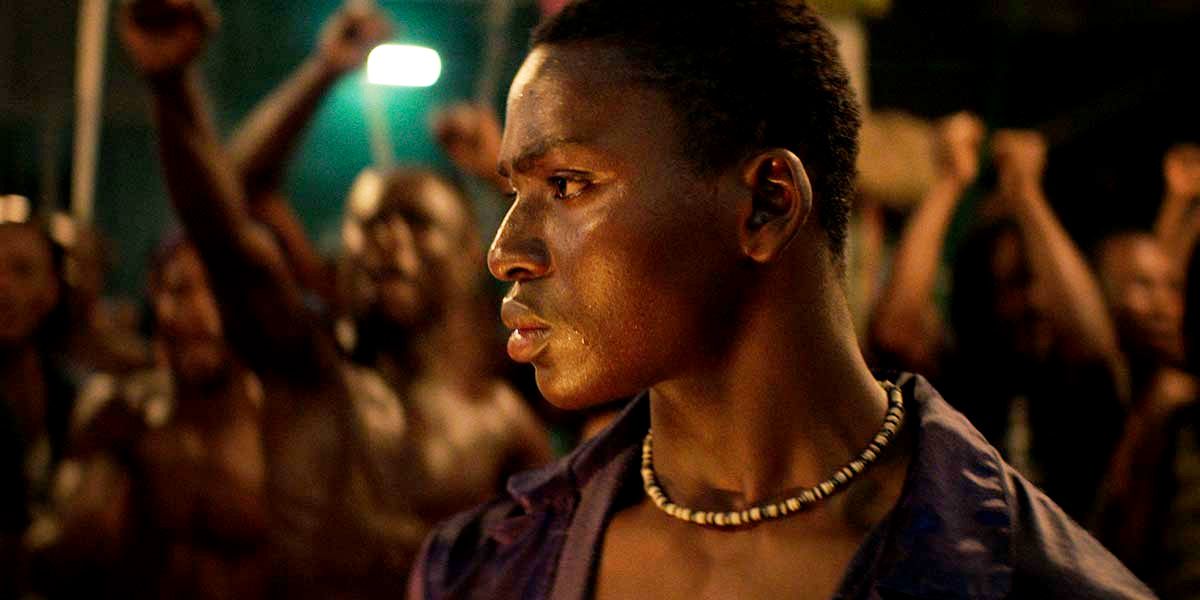
Yet there are undercurrents of violence just waiting for an opportunity to gush out. Just as our hero arrives in the corridors of MACA – ‘it’s a five-star prison!’ – a group of men are surrounding a transvestite inmate: clad in a leopard-print dress, she is hunted and surrounded, and it’s about to get nasty. The new inmate’s arrival shifts the men’s focus and saves the naked and cowering victim.
The new kid on the prison block is summoned to Blackbeard and is designated the name Roman. He is tasked with telling a tale throughout the long and magical night of the red moon, for this is no ordinary prison movie, but is a tale rooted both in A Thousand and One Nights, in Shakespeare and in the tradition of griots.
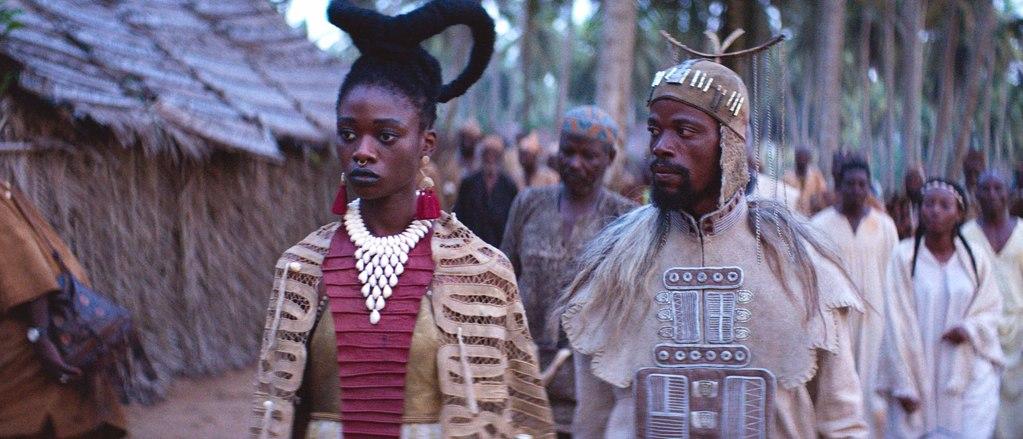
Roman (Bakary Koné) is petrified as he considers himself no storyteller. Yet he is preened and prepped for the night’s performance and appears shimmering in princely purple and beautiful in the flickering lamplight. Cooks have called upon to serve a midnight feast, the inmates have crowded into the hall and the stage has been set. Stepping onto a tiny platform – its size representing the ease with which he can be toppled – Roman begins his story. Lacôte’s staging of Roman’s taletelling transforms the film into an immersive theatrical performance. (Underlining this is the appearance of Denis Lavant, the French actor who was born to be a Shakespearean clown.) As Roman begins the account of Zama King, the murdered leader of the Microbes gang and hero to the prison inmates, his words are picked up by some of the men who dance or enact the scenes he recounts. Other men act as a Chorus, singing about events taking place during the long night.
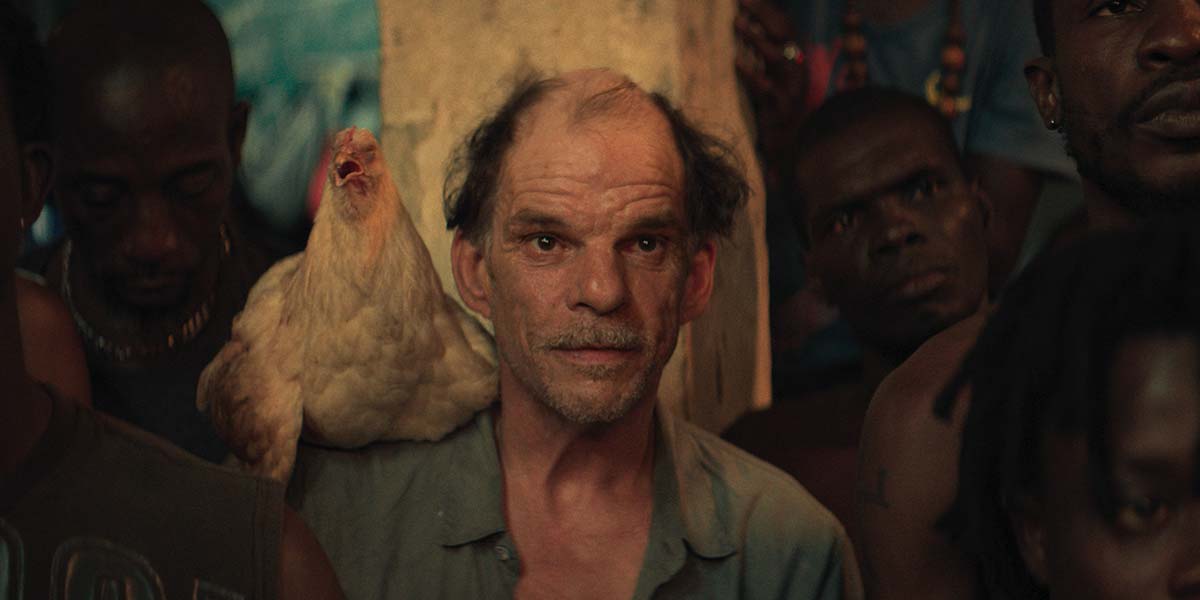
For while Roman is telling his story, behind the scenes there are other machinations: as Bluebeard prepares to renounce his throne, the usurpers are scheming and laying the ground for a power grab from the Dangoro’s chosen successor. And of course, the terrified Roman – an unwitting Scheherazade telling his tale to stay alive – is a born raconteur. He talks of his aunt, who was a griot (a West African storyteller or bard) who taught him the tricks of good storytelling. His story of Zama interweaves a thoroughly modern tale that takes in the overthrowing of a president and the rise of republican forces with Zama’s backstory, which wafts back in time to the nineteenth century, when magical queens held sway. Like Roman’s captive audience, the viewer is also enchanted by the magical realist tale, and when the story is interrupted the onscreen and offscreen audience sits agog waiting for Roman to continue.
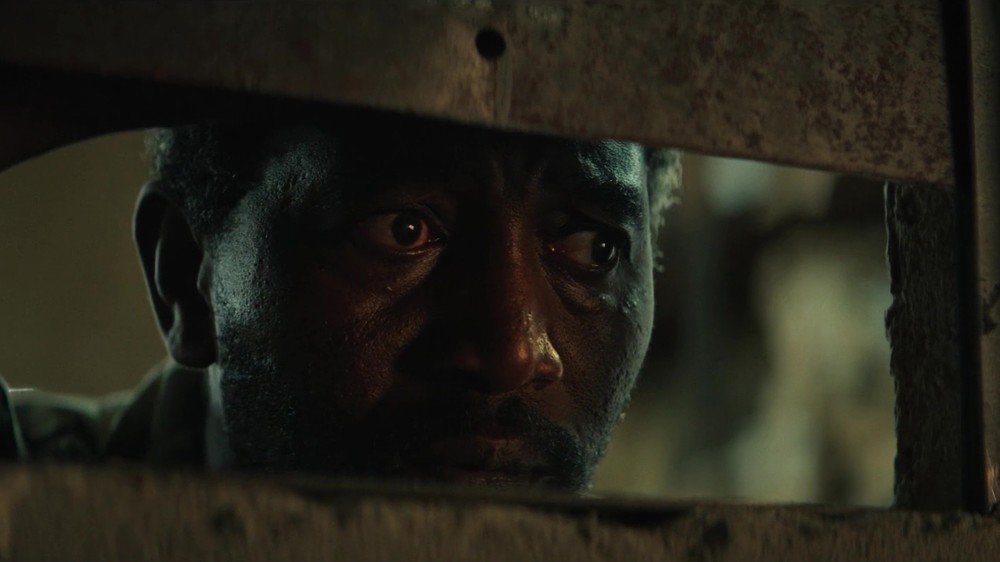
Philippe Lacôte has created a film that tells a tale at once contemporary and timeless. He depicts the troubled, corrupt and impoverished Ivory Coast, in particular the capital Abidjan and its shantytowns, whilst sweeping the audience to the country’s magisterial past. Tientcheu provides the necessary gravitas and world-weariness to his king of MACA, while as the warring leaders fighting for power, Jean Cyrille Digbeu as Semi-Fou, and Abdoul Karim Konaté as Lass provide the edge, the testosterone and the palpable sense of danger. However, this is the griot’s film: Koné is magnificent, entering the prison as a trembling wide-eyed newbie and growing in stature and beauty as he weaves his wonderful yarn. This story, or rather these stories, are bewitching and remind us of the importance and magic of great storytellers. Philippe Lacôte can count himself as one of them.
- IFFR 2021 | Riders of Justice: Anders Thomas Jensen’s movie review
- IFFR 2021 | Riders of Justice: Anders Thomas Jensen’s movie review
- IFFR 2021 | Rotterdam Big Talk with Mads Mikkelsen and Rosa Bosch
A clip from Night of the Kings:


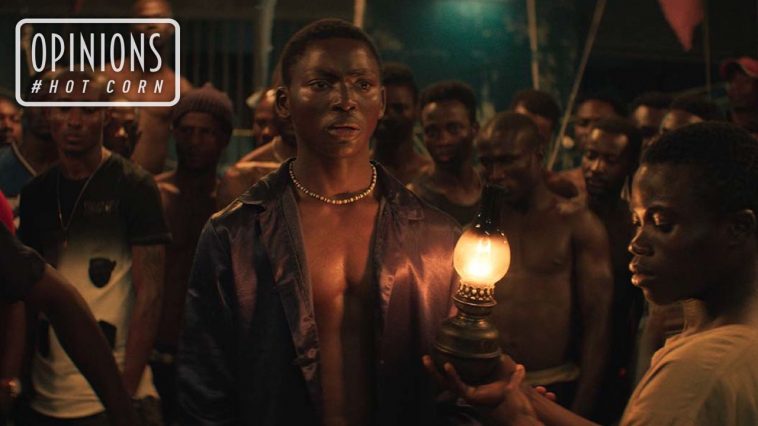





Leave a Comment